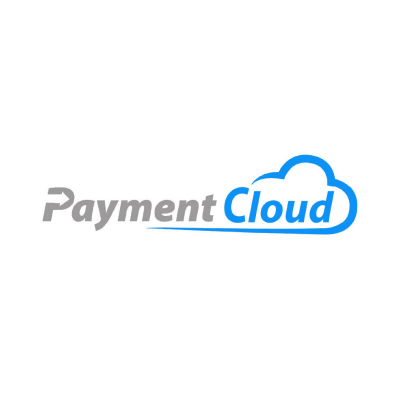5 Great Payment-Related Tools for Ecommerce Stores
Payments are probably the most important part of your ecommerce store. You can only run it if you have a way to collect money and then reuse it to create more products and market your store.
This is why you need to meticulously choose the best payment tools. They need to have no downtime so you can accept payments any time anywhere and they also need to help you maximize payments so you get the maximum revenue from your customers.
To help you pick the best tools we have made a list of the top 5 payment-related tools for ecommerce stores below…

1. Payment Cloud

One of the biggest mistakes people make when they start an ecommerce store is to just pick a payment gateway. Sure, a payment gateway is an essential piece of your ecommerce store. You can’t accept payments if you don’t have a payment gateway.
But along with it you also need a merchant account. You see when you take a normal payment gateway the payment gateway comes with its own merchant account. After the transaction takes place on the payment gateway the funds get deposited in this merchant account. The funds are later released into your own bank account.
When you allow the money to get deposited into the merchant account of a payment gateway, you are taking a big risk. For some reason, if the payment gateway decides to pause your account, you won’t get your money back. Sometimes disputes don’t get settled, and they hold onto your money forever. Many businesses have gone bankrupt because of this.
This is why you should also get your own merchant account along with your payment gateway. This way the money gets directly deposited in your merchant account, and you can gain access to the money immediately. Even if your payment gateway account gets suspended, they can’t touch the money in your merchant account.
One of the most popular merchant account providers out there is PaymentCloud. It’s a high risk merchant provider, but it is a great solution also for low and medium risk businesses. Along with the merchant account you get additional benefits such as check processing, merchant funding, fraud prevention, and the option to accept payments via credit cards in person, not just online.
The ability to accept payments with credit cards in person will help you sell products off line as well.
2. Shopify

To get the maximum number of people to pay you need a pleasing checkout page and this is where ecommerce builders like Shopify come in. These tools will not only help you set up a good product page and homepage, but also other things like the checkout page. You can choose the page color, fields, and so many other details. And this is accompanied by robust analytics tools that you can use to see how well your checkout pages are converting.
You can then use the data from these tools to make modifications to your checkout pages and get even more conversions. Shopify has some good built-in analytics, but at the same time, you have access to several third-party analytics tools that can help you unearth even more data.
There are also all sorts of apps in the marketplace that can help you with email marketing, ad management, CRO, and so many other aspects that are essential for running an ecommerce store. Another big benefit of Shopify is that it integrates with PaymentCloud so you can ensure that all the money you generate gets quickly deposited in your own bank account and you can quickly access it and reinvest it in your store. This could be to improve the store or to make more products.
3. ClickFunnels

If you are selling physical products and have a lot of products, then ecommerce builders like Shopify are ideal, but if you are selling only a few products or have more digital products, then you need a more robust funnel. You also need a checkout page that comes with features that let you add bump offers, one click upsells, and other things that bump up the average order value. One popular tool that lets you do this is ClickFunnels.
This tool also helps you create extremely aesthetic checkout pages that you cannot build with simple tools like Shopify. It comes with all sorts of features that help you set up digital products like courses and deliver them. This can save you money and simplify the process, as you won’t need to use multiple tools. Everything will be in one place.
4. Xero
Bookkeeping is an essential part of running an ecommerce store. You need to pay for a lot of tools, pay employees, calculate taxes, set mone aside for creating more products, and reserve money for marketing. Doing all of this on a piece of paper or spreadsheet is a complicated process. This is where tools like Xero come in. These tools directly integrate with your ecommerce builder or payment gateway and will automatically calculate your income, expenses, and profits, so you reserve money for the essential expenses without overspending on certain aspects of your business.
Some bookkeeping tools can also automate certain payment aspects so they take place automatically without you needing to do them manually. This can save you even more time which can be very helpful as you will be busy with so many things while managing your ecommerce store.
5. Chargebee

One way to ensure your ecommerce store generates regular revenue is to offer subscriptions. Instead of getting customers to buy just one time and hope that they buy a second and third time when you follow up with emails or retargeting ads, you offer a subscription so they receive the product at regular intervals. This could be every week, every month, or another convenient time period. You might have noticed this when you purchased products like dog food or coffee on Amazon.
Setting up this is actually a very complicated process, this is why so many small ecommerce brands avoid it. However, there is one tool that immensely simplifies this process. It is Chargebee. It was initially created for selling digital products like SaaS software, but it recently introduced subscriptions for ecommerce products.
It can help you with automating the subscription process and also provides a ton of data that you can reuse to improve your subscription funnel and other aspects of your ecommerce funnel as well.
Now get those tools
Ecommerce payment tools have come a long ago. Just a decade ago the tools we had at our disposal were payment gateways, merchant accounts, and builders. But now there are so many payment and finance tools for ecommerce stores that can help you make more money and also save some while spending less time on your ecommerce store.
If you want to get the maximum revenue from your ecommerce store without the need to spend more time or hire a ton of employees to help you out you should look into getting a few of these tools and building your tech stack.
These tools make it easy for just one person to run their ecommerce store while working part-time.
About the Author

Rachel Bowland is the content manager at Social Marketing Writing and Creatiwitt – she likes to write about marketing and design.






